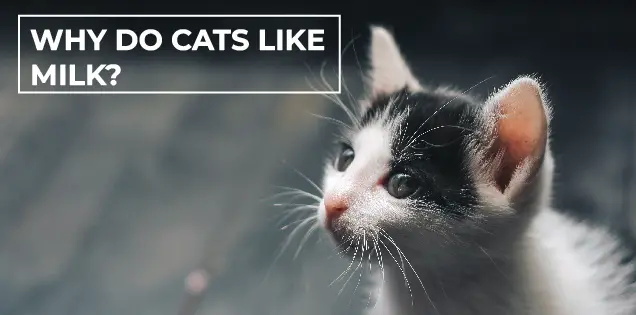So, why do cats like milk? If you are a cat owner, you surely know how much they love attention. But have you noticed your cat circling you whenever you open the refrigerator?
At first, you might wonder what’s going on and think that they are just asking for your attention or wants to play with you, but as time passes by, you will notice how your cat gets excited when you take out the carton of milk from your refrigerator or grocery bag.
Now that you love your pet, seeing them circling you, you might give them a bowl of milk. But have you ever wondered whether giving your cat the milk is alright? Well, you need not worry about that anymore because after going through this article, you will know why cats like milk and if it is ok to give milk to your cat.
Why Are Cats Obsessed With Milk?
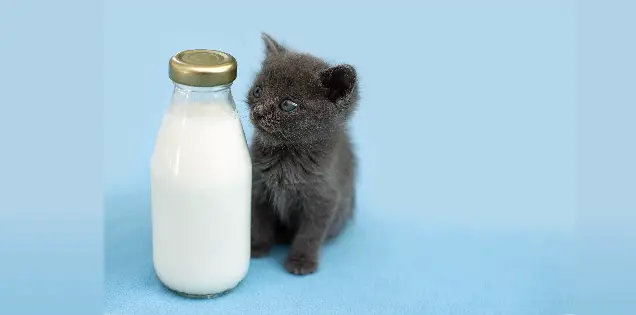
Cats possess an excellent memory system. So they can associate their craving for milk with the time they were with their mothers as kittens. Which all the more increases their yearning.
However, that might not be the actual reason why cats love milk. Milk is rich in proteins and fat. In addition, fats give a pleasant taste to the milk, which attracts cats and makes them obsessed with milk.
Are Cats Obsessed With Other Dairy Products Too?
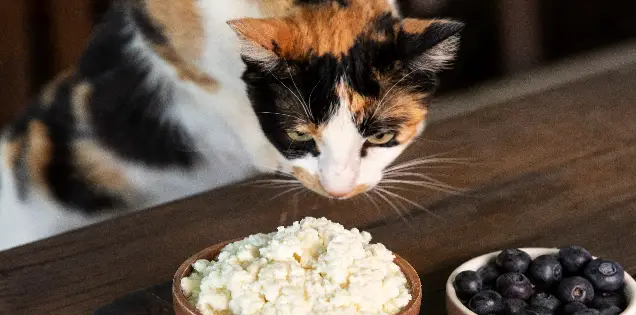
Yes, cats love other dairy products too. Dairy products such as yogurt, cheese, and butter attract them. It is the same reason because of which they love milk. Dairy products such as yogurt, cheese, and butter also contain fat and protein, the sense and smell of which attract cats.
Is It Ok to Give Milk to Cats?
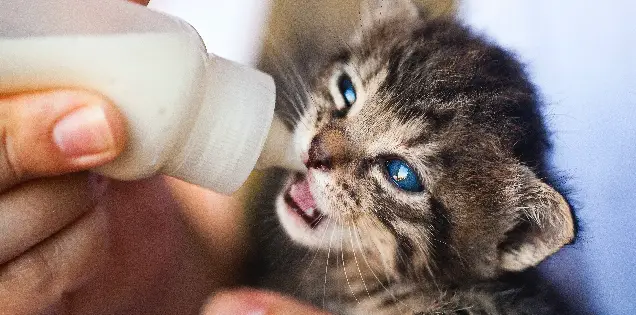
No matter how much your cat loves to drink milk, it is wrong to give it to cats. Lapping milk can cause lactose intolerance which can cause various side effects in cats.
Lactose Intolerance In Cats
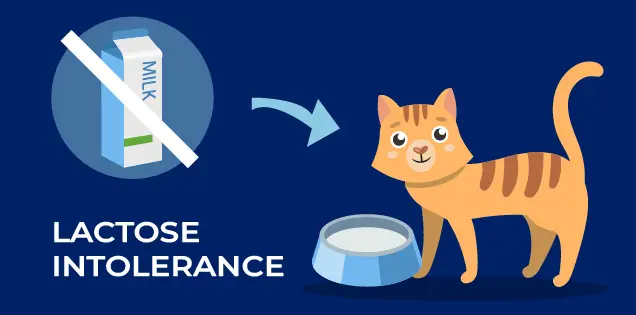
As kittens grow into adult cats, lactase production decreases in their body. Lactase is the enzyme that helps in lactose digestion. Thus, adult cats no longer have the ability to digest milk sugars. Hence, if adult cats drink milk excessively, they will not be able to digest the milk’s lactose, resulting in severe gastrointestinal problems called lactose intolerance.
Most cats are lactose intolerant, and when such a cat drinks milk, it will not be able to digest it, leading to vomiting and diarrhea. It happens because the body tries to get the lactose out of the system while simultaneously drawing water.
However, not all cats are lactose intolerant; few cats do drink milk without experiencing any side effects. To check whether your cat is lactose intolerant or not, you can feed your cat one or two spoons of milk and then look for symptoms such as vomiting or diarrhea. These symptoms usually occur within eight to twelve hours of drinking milk. If you see signs or symptoms, then you will know that your cat is lactose intolerant, and if no symptoms show up, you are good to give your cat dairy products. However, even if your cat is not lactose intolerant, it is better not to feed milk to your cat regularly.
Impact Of Lactose Intolerance
Just like lactose intolerant people, cats are lactose intolerant too. Lactose intolerance in cats affects them in many ways. Undigested lactose remains in the gut, which leads to fermentation. This process produces gas, which, when accumulated in the intestine, causes bloating. It can also cause vomiting and abdominal pain, and discomfort in cats.
When lactose remains undigested, the body tries to get it out of the system while drawing water simultaneously, which causes diarrhea. If diarrhea remains untreated for some time, it might lead to dehydration.
Also, even if your cat can digest milk, the fat content present in milk can cause weight gain and obesity, which might lead to serious health issues.
Immediate Next Step
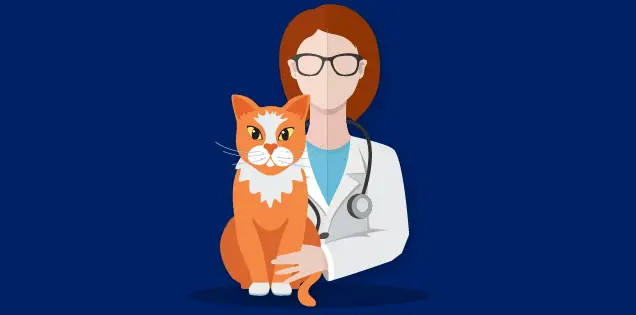
In case of your cat is vomiting or showing symptoms of diarrhea, home care will not be enough as many cats dehydrate fast, which can lead to fatal consequences. Thus, it will be best to take your cat to a veterinarian immediately.
Also, if you cannot take your cat to a vet immediately, fasting might help calm the gut down. Then as soon as vomiting and diarrhea stopped, give your small cat amounts of bland food and water.
What Should Cats Drink?
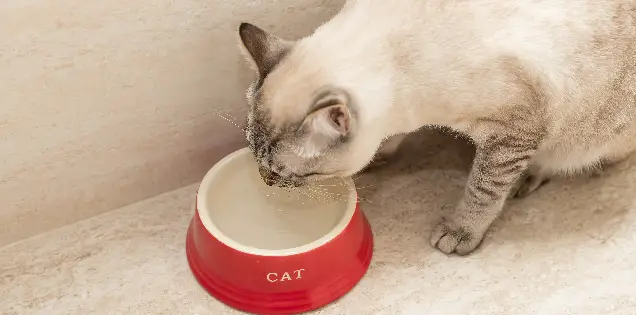
To maintain a healthy and balanced diet, cats should drink water only. The amount of water your cat should drink depends on several factors, such as size, age, and the type of cat food they consume. Also, if a cat has health problems such as diabetes or kidney disease, they need to remain hydrated. However, if your cat avoids drinking water, then you might look for ways by which you will be able to keep your cat hydrated.
Ways to Keep Your Cat Hydrated
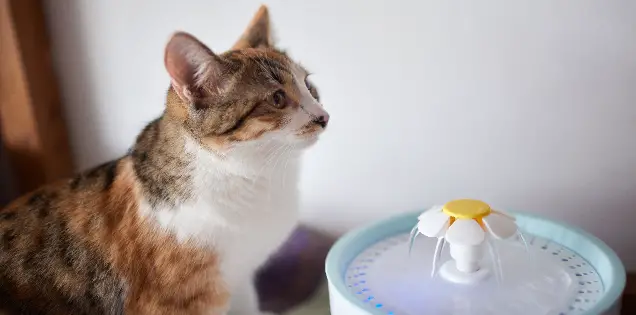
Dehydration can be worst for your little friend. It might lead to serious health hazards. Thus, it would help if you always kept your cat hydrated. However, if they are not ready to consume water in its usual form, you will have to try different ways.
You can boil some chicken or fish (without salt and oil) and give your cat the liquid broth.
Oral rehydration fluids might also work.
Some cats even prefer pet-drinking fountains instead of water bowls.
You can also feed your cat canned foods with high water content.
Is It Ok to Give Almond Milk to Cats?
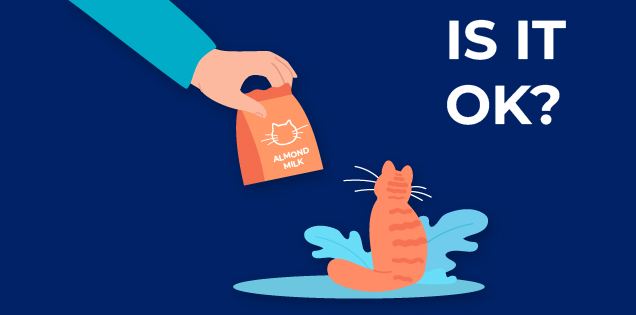
If your cat can digest milk and other dairy products, giving your cat almond milk might be alright, but in small quantities only. However, almond milk is usually safe for cats as an occasional treat.
Is It Ok to Give Soy Milk to Cats?
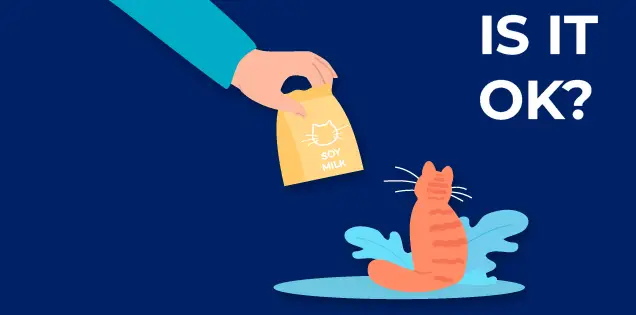
Many manufacturers use soy to produce several cat foods. However, it is a controversial supplement because many cats are allergic to soy. Thus, it will be better not to give your loved one soy milk. Also, plant-based proteins are not suitable for cats, who are obligate carnivores.
Can Kitten Drink Milk?
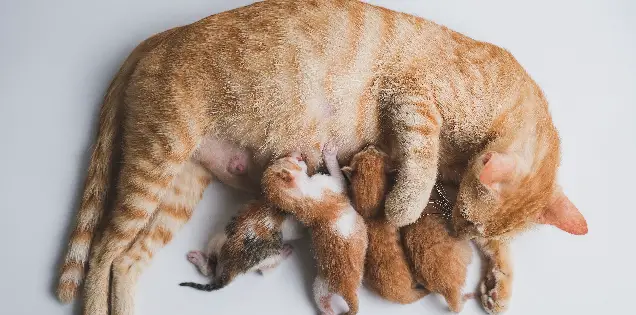
Yes, kittens can drink their mother’s milk. It is because their mother’s milk will satisfy all their nutritional needs from birth until they start weaning. In addition, unlike adult cats, young kittens can produce lactase, which helps them to digest lactose. Thus, a kitten can drink milk without any worries.
However, in the case of an orphaned or abandoned kitten, milk from any other species is unhealthy as it will not provide all the nutrients required for healthy development. Thus, it will be better to give the kitten ‘specially formulated milk for kittens.’
Kittens start weaning from four weeks of age; this will be the right time to give them a small amount of solid food and a shallow bowl of fresh water.
Alternative Treats
Though cats prefer milk, it is harmful to them. So, to replace it, you can give your little buddy another special treat. Several meat-based cat treats are available in the market, which might work as an alternate treatment for your little furry friend.
Final Words – Why Do Cats Like Milk?
Now that you know what is suitable for your cat, you know that milk does not make it to the list. Thus, it’s time to replace the bowl of milk with a bowl of fresh and clean water. You might also follow some ways by which you will be able to keep your cat hydrated. In addition, you might give your buddy a few alternative treats to replace milk. However, the best alternative would be to give your time and love to your little feline friend.
